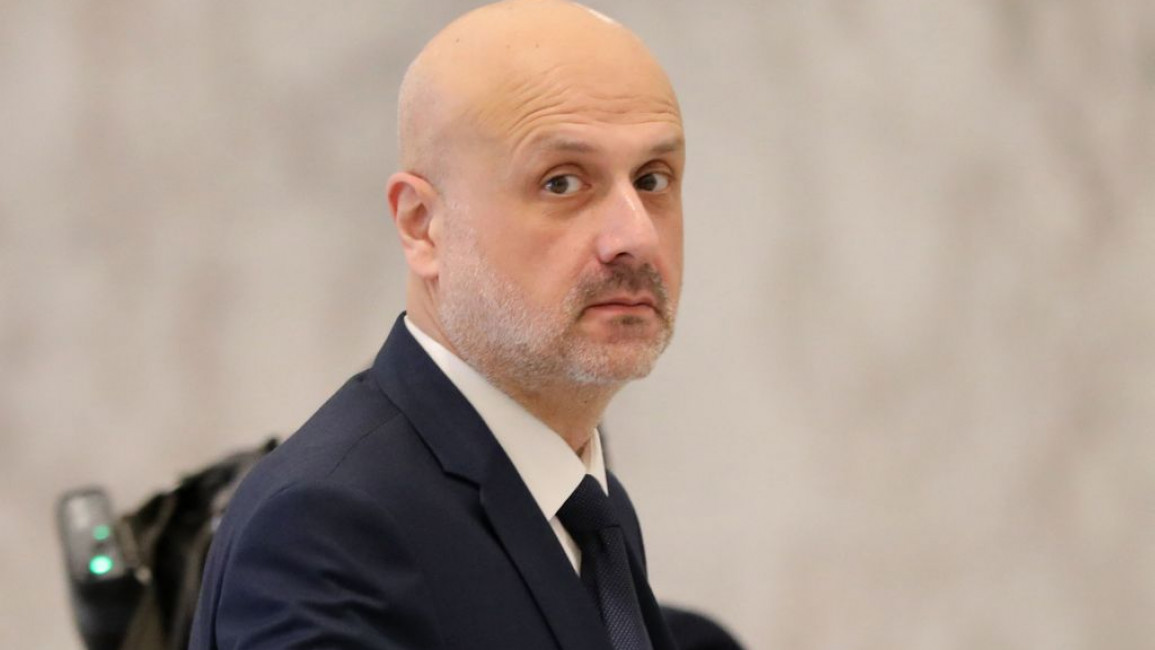Lebanese interior minister asks Bahraini opposition party to leave Lebanon
Lebanon's Interior Minister Bassam al-Mawlawi on Wednesday ordered measures to be taken to deport non-Lebanese members of an outlawed Bahraini opposition party to avoid dealing another blow to Beirut's ties with Gulf states.
The request came after Al-Wefaq - a Shia-majority political party banned by Manama - held a press conference last week at a hotel south of Beirut.
The meeting drew strong condemnation from Bahrain which criticised the Lebanese government for allowing the event to take place.
Al-Mawlawi's decision came after a phone call earlier in the day with his Bahraini counterpart, Rashid bin Abdullah Al Khalifa, who had told him that "the promotion of malicious allegations from illegal factions (in reference to Al-Wefaq) from Lebanon harms the two countries relations".
Al-Mawlawi reviewed the steps that had been taken by security services to collect data on any individuals deemed "hostile" towards Arab nations, especially when engaged in political activities without official permission.
Lebanon has already been embroiled in an unprecedented diplomatic rift with a number of Gulf states since late October.
Bahrain over the weekend described the conference as "hostile" with the purpose of "broadcasting and promoting abusive and malicious allegations against the Kingdom of Bahrain," and submitted a "strong formal protest" to the Lebanese government.
The island kingdom was rocked by protests between 2011 and 2014 when pro-democracy and anti-regime uprisings swept the region. The demonstrations were met by a fierce crackdown by the government with the help of neighbouring Saudi Arabia.
Lebanese officials were quick to denounce the conference last week as Al-Mawlawi promised to investigate those behind it. He reiterated in his phone call with Al-Khalifa on Wednesday that the Lebanese government will not allow "harmful acts" against Gulf states.
The two ministers said they would continue to cooperate and exchange information on security issues affecting the two countries.
The Gulf has concerns over growing dominance in Lebanese politics by the Shia paramilitary movement Hezbollah.
Hezbollah is backed by Iran, which the Gulf Cooperation Council [GCC] accuses of destabilising the region and conspiring against them in Bahrain and Yemen.
The GCC classifies Hezbollah as a terrorist organisation.
Efforts have been in place to restore ties between Lebanon and the Gulf, which Beirut's economy relies heavily on through trade and expatriate remittances, and in previous years tourism.
On 4 December, Lebanese Prime Minister Najib Mikati said a call with Saudi Crown Prince Mohammed Bin Salman was an "important step" towards restoring relations with the Gulf.
GCC leaders have, however, said Lebanon needs to take vital steps in financial and administrative reforms to root out systematic corruption, as well as control its borders.
They have also accused Hezbollah of smuggling drugs to Saudi Arabia and neighbouring states.


![Lebanese protesters take part in a demonstration in support of Palestinians on 18 May 2021 in Beirut, Lebanon. [Getty]](/sites/default/files/styles/image_212x120/public/2021-06/GettyImages-1232967618.jpg?h=58c8a5e7&itok=VxDT8yaL)
